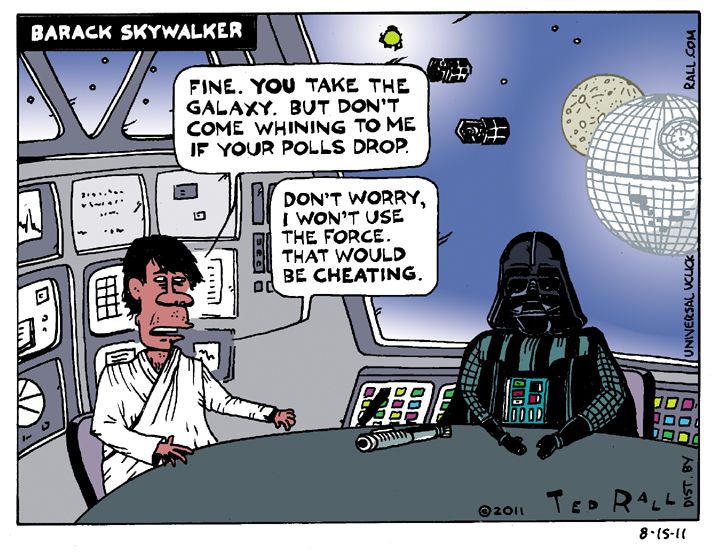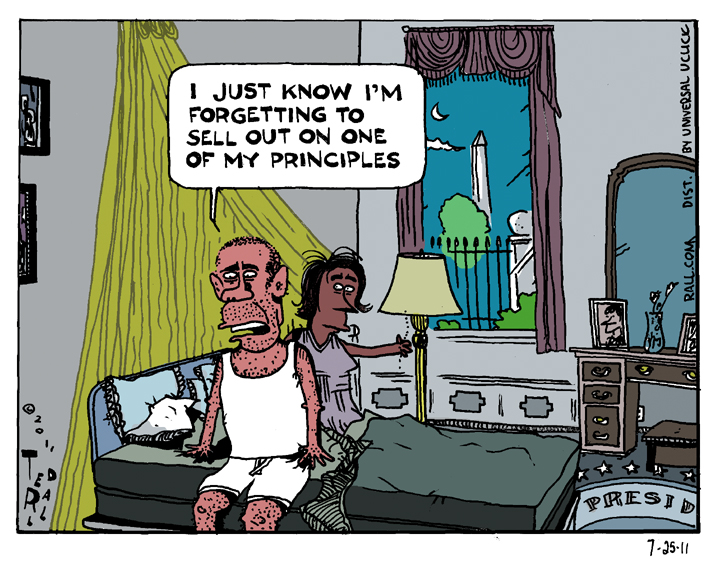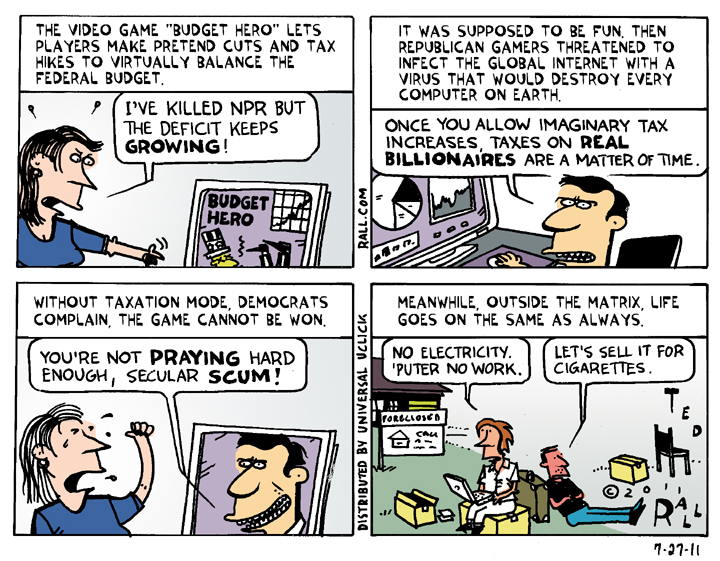The US war of words against Syria is marred by hypocrisy and a lack of realism.
You’d need a team of linguists to tease out the internal contradictions, brazen hypocrisies and verbal contortions in President Barack Obama’s call for Syrian President Bashar al-Assad to relinquish power.
“The future of Syria must be determined by its people, but…”
The “but” belies the preceding phrase—particularly since its speaker controls the ability and possible willingness to enforce his desires at the point of a depleted uranium warhead.
“The future of Syria must be determined by its people, but President Bashar al-Assad is standing in their way. His calls for dialogue and reform have rung hollow while he is imprisoning, torturing and slaughtering his own people,” Obama continued. One might say the same thing of Obama’s own calls for dialogue and reform in Iraq and Afghanistan. Except, perhaps, for the fact that the Iraqis and Afghans being killed are not Obama’s “own people”. As you no doubt remember from Bush’s statements about Saddam Hussein, American leaders keep returning to that phrase: “killing his own people”.
Now the Euros are doing it. “Our three countries believe that President Assad, who is resorting to brutal military force against his own people and who is responsible for the situation, has lost all legitimacy and can no longer claim to lead the country,” British Prime Minister David Cameron, French President Nicolas Sarkozy and German Chancellor Angela Merkel said in a joint statement.
If you think about this phrase, it doesn’t make sense. Who are “your” own people? Was Hitler exempt because he didn’t consider his victims to be “his” people? Surely Saddam shed few tears for those gassed Kurds. Anyway, it must have focus-grouped well back in 2002.
“We have consistently said that President Assad must lead a democratic transition or get out of the way,” Obama went on. “He has not led. For the sake of the Syrian people, the time has come for President Assad to step aside.” Here is US foreign policy summed up in 39 words: demanding the improbable and the impossible, followed by the arrogant presumption that the president of the United States has the right to demand regime change in a nation other than the United States.




